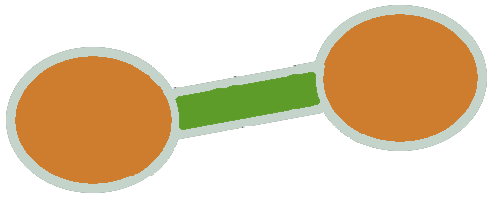Ninatoka
 condition
conditionRestless legs syndrome (RLS)
Restless legs syndrome (RLS) is a common neurological sensory-motor disorder that is characterized by intense restlessness and unpleasant creeping sensations deep inside the lower legs. Symptoms appear when the legs are at rest and are worst in the evening and at night. They force patients to keep moving their legs, and often to get out of bed and wander about. Periodic limb movements (PLMS) are also common during sleep amongst those suffering from RLS, and sleep efficiency is severely reduced. There are idiopathic as well as symptomatic forms of RLS, the latter being associated with e.g. pregnancy, iron deficiency and chronic renal failure. A family history of RLS is very common and pedigrees in these cases suggest an autosomal-dominant transmission with high penetrance. Genetic investigations have been performed in order to identify genes associated with RLS. Several loci have been found (on chromosomes 12q, 14q, 9p, 2q, 20p and 16p). Pathophysiology of RLS remains incompletely understood. However, advanced brain imaging studies and positive results of dopaminergic treatment suggest that RLS may be generated by dopamine dysfunction locally within the central nervous system. At present, there is a wide range of treatment options including levodopa, dopamine agonists, opioids, benzodiazepines, antiepileptic drugs and iron supplements.
Ref:
Ekbom K, Ulfberg J. Restless legs syndrome. J Intern Med. 2009 Nov;266(5):419-31. doi: 10.1111/j.1365-2796.2009.02159.x. PMID: 19817966.
Join Ninatoka!!
NinatoKa's goal is to support you as a therapist in unravelling the illness pathway from symptoms to cause, and to help you detect potential interventions.
Go to Explore to start your discovery!
Go to Learn to scroll through newly added data.
Go to Contribute to contribute to the Ninatoka database.
You can rate content up or down and add comments if you agree or disagree.



